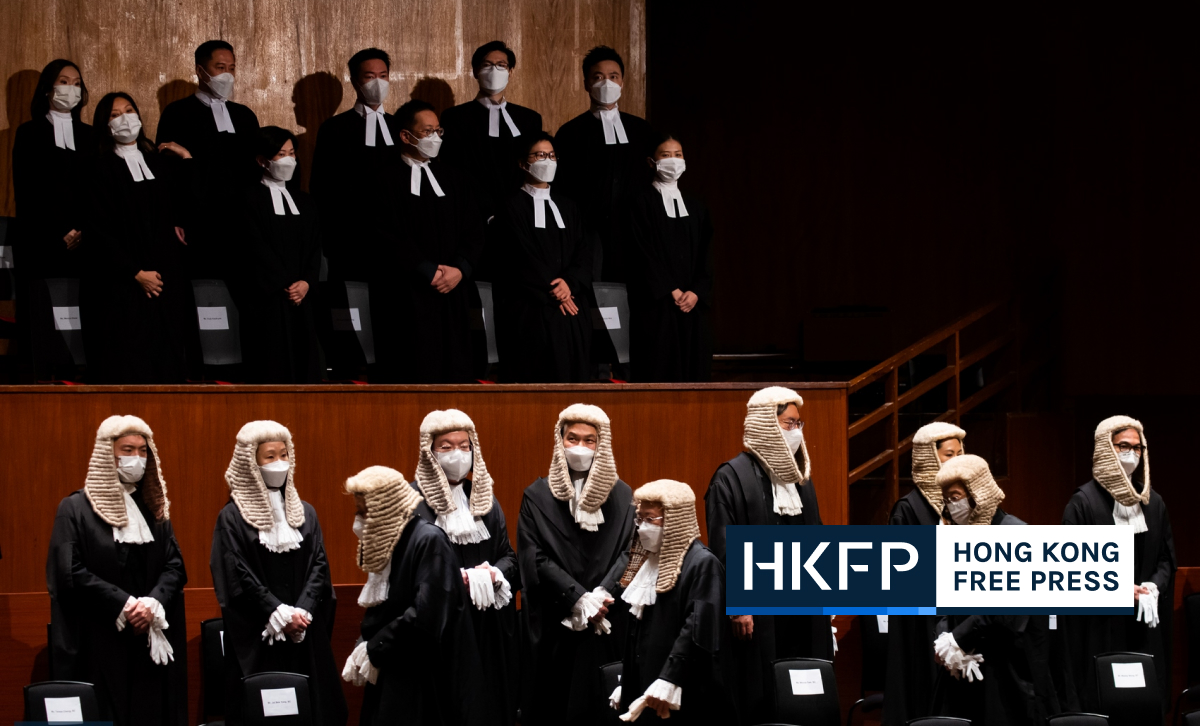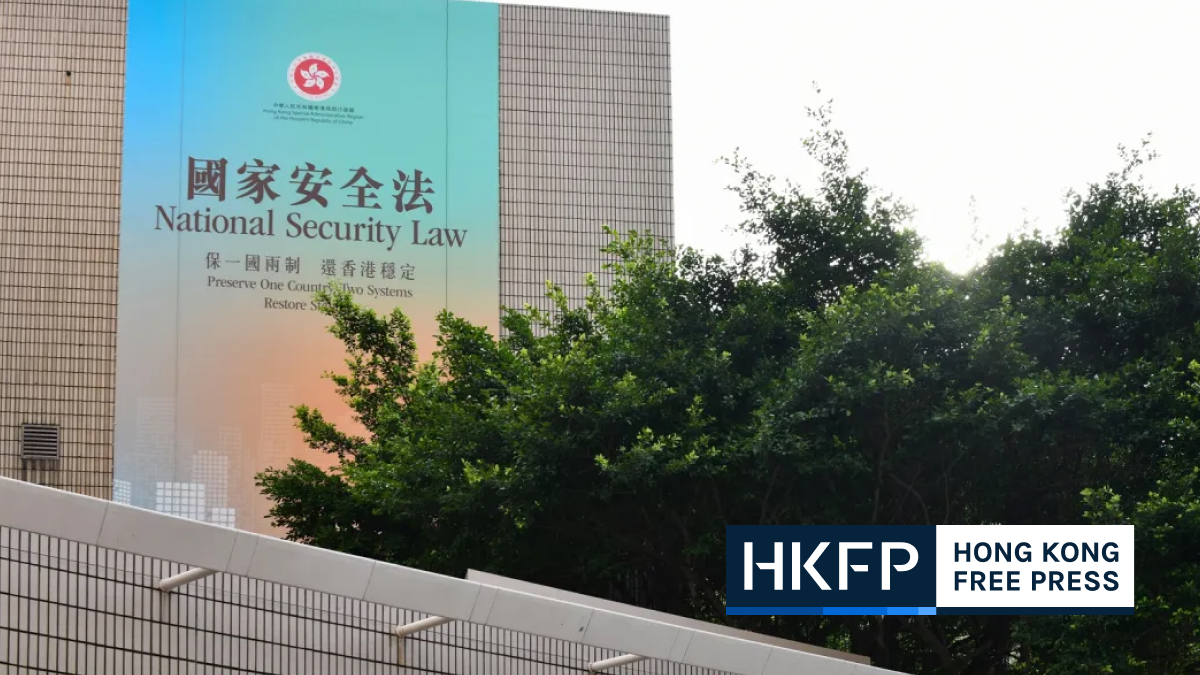Taiwan residents have been warned against “accidentally stepping into a minefield” and being arrested under Hong Kong’s national security law while travelling to the city by the self-ruled island’s authorities.
The Mainland Affairs Council (MAC) of Taiwan recently updated a section on its website dedicated to Hong Kong’s national security law, informing people of behaviours that might be considered offences under the Beijing-imposed legislation, MAC spokesperson Jan Jyh-horng said during a regular press conference on June 15.

In a recently updated pdf called “When in Rome, do as the Romans do to reduce the risks”, the MAC gathered 21 examples of national security and sedition cases in Hong Kong, and said: “Based on actual cases, these behaviours are at risk of being considered a crime!!!”
Cases listed included: “chanting or presenting slogans related to Hong Kong independence in a public space”; “mourning a man who died after stabbing a police officer in front of a shopping mall”; “planning to protest at the Hong Kong Liaison Office on the day Beijing held the opening ceremony of the Winter Olympics”; and “mourning the Tiananmen crackdown anniversary through performance art.”
At the bottom of the list, MAC used an icon of a landmine to highlight that the Hong Kong government was seeking to ban the circulation of protest song Glory to Hong Kong with criminal intent.
The MAC had received numerous inquiries related to reducing the risks to travellers in Hong Kong and Macau, which was why the authority updated its website, Jan said during the press conference.

“People called asking [whether they would violate the law] if they sang a certain song, or just had a digital version of the song, or wore clothes of specific colour. But we don’t need to be too afraid,” Jan said. “It might be a bit inconvenient. But we should just try not to offend [the Hong Kong authorities], so that there can be safe and smooth exchanges between people from Taiwan and Hong Kong.”
The MAC also reminded Taiwan residents to register their personal information with the government before going to Hong Kong to allow the authorities to assist anyone who may be arrested in the city.
‘Draconian law’
The MAC has been criticising Hong Kong national security law since the legislation came into effect in June 30, 2020, accusing the law of tearing up Beijing’s commitments to Hong Kong’s One Country, Two Systems mode of governance and of violating democracy and human rights.

In June 2020, Beijing inserted national security legislation directly into Hong Kong’s mini-constitution – bypassing the local legislature – following a year of pro-democracy protests and unrest. It criminalised subversion, secession, collusion with foreign forces and terrorist acts, which were broadly defined to include disruption to transport and other infrastructure. The move gave police sweeping new powers, alarming democrats, civil society groups and trade partners, as such laws have been used broadly to silence and punish dissidents in China. However, the authorities say it has restored stability and peace to the city.
As of May 25, 251 persons had been arrested over suspected acts and activities that endangered national security, the Security Bureau told HKFP. Among them, 154 people and five companies had been charged.
On its website’s special section on the Hong Kong national security law, the MAC has a page called “landmines of the draconian law”, a Q&A about the law and also a series of infographics illustrating the legislation.
“Even if you are not a Hongkonger and do not reside in Hong Kong, you run the risk of being arrested if you enter Hong Kong… or transit through the city with so-called ‘criminal behaviour’,” MAC said in the infographics.
For criminal acts, MAC listed examples of “landmines”, such as participating in activities calling for Hong Kong or Taiwan’s independence, including on social media, carrying 2019 protest posters on flights to Hong Kong, and criticising the Beijing and Hong Kong governments.
“You think it has nothing to do with you, but it is closely related to you,” the MAC-published infographics read.
Taiwan has been ruled by the Republic of China government since 1945 after Japan — which occupied the island for 50 years — was defeated in the Second World War. The People’s Republic of China claims that Taiwan is one of its provinces and does not recognise it as an independent country.
Support HKFP | Policies & Ethics | Error/typo? | Contact Us | Newsletter | Transparency & Annual Report | Apps

















